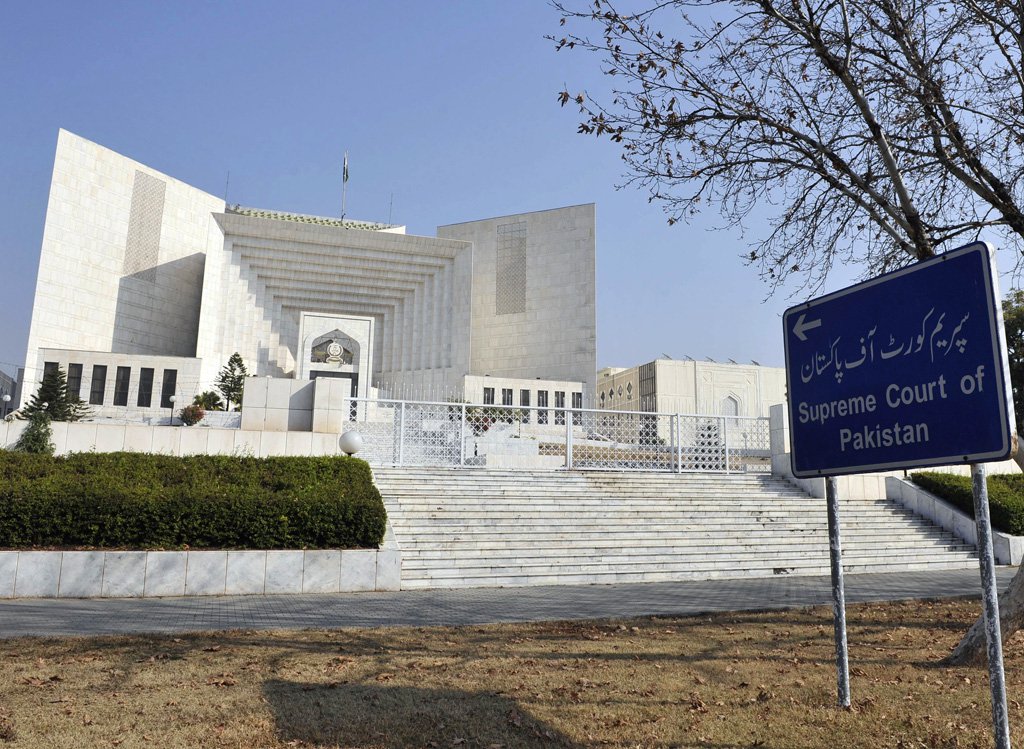
A five-judge larger bench – headed by Chief Justice Asif Saeed Khosa – was hearing the federal and the K-P governments’ appeals against annulment of the K-P Action (in Aid of Civil Power) Ordinance, 2019 by the Peshawar High Court.
Justice Khosa told Attorney General for Pakistan (AGP) Anwar Mansoor Khan that the apex court would examine Article 10 of the Constitution which safeguards the rights of arrested or detained people.
The chief justice noted that Article 10 mentions “enemy alien” – to whom the safeguards did not apply. “Who are these people [enemy aliens]? Are they Pakistani citizens? Are those people whose citizenship has not been established kept at the internment centres?” the CJP asked the top law officer.
The AGP responded that the term “enemy alien” described an individual whose citizenship had not been established and who was accused of working for foreign forces.
“Many people in the tribal districts don’t possess national identity cards. They [people detained at the internment centres] are mostly those whose citizenship could not be established,” he added.
Justice Qazi Faez Isa noted that the people detained under this law were supposed to be produced before a special court. “Have you produced them before a special court? You have also not bothered to provide the court with the names of the books that concern these laws,” he remarked.
Justice Isa further said that he wanted to understand how an individual was declared “enemy alien” and under which law he was tried.
The AGP replied that apparently the honourable judge did not wish to understand.
Irked by the response, Justice Isa remarked that it was the law officer’s duty to reply to the query in accordance with the law.
The AGP said the Pakistan Protection Act, 2014 had been introduced to deal with the enemies of the state. “Anyone who takes up arms against the state is enemy of the state,” he added.
Justice Isa observed that an investigation was required before declaring someone enemy of the state. “The report of investigation is supposed to be submitted to a court. How many investigation reports have you submitted to the courts?” he asked.
Chief Justice Khosa noted that the federal government officially declared somebody enemy of the state. “There was also a debate over Pakistan giving the status of ‘Most Favoured Nation’ to India. It was argued as to how a hostile country could be accorded such a status,” he observed.
Justice Isa asked the AGP if India had been declared an enemy state.
The law officer replied that he would submit a notification in this connection soon.
Justice Isa asked if he would submit it to the court after the case had been decided. “You are not responding to the questions properly and nobody has taken notice of this issue so far,” he added.
The AGP replied that it was court’s job to take notice of such issues. “I am being constantly interrupted and not being heard. I can’t present my arguments in such an environment,” he said.
Justice Gulzar Ahmed told the law officer to present his arguments instead of quarreling with the judges. Justice Khosa also said it was the government’s responsibility to satisfy the court.
The chief justice sought a report on how many cases of detainees at the internment centres were disposed of and whether they were produced before a court of not.
The AGP said he would submit the report within two weeks.
The CJP said the court was concerned at every detainee and it would decide the case if the law officer did not come prepared to the next hearing. The hearing was then adjourned for two weeks.
The K-P Action (in Aid of Civil Power) Ordinance, 2019, issued by the K-P governor on Aug 5, gave legal cover to several detention centres set up during the military operations in the erstwhile tribal areas.
The ordinance also assigned wide-ranging powers to the authorised officers and armed forces besides giving an interning authority to detain a suspect until the continuation of action in aid of civil power by the armed forces.
However, the PHC on Oct 18 declared it unconstitutional, violative of all fundamental rights as enshrined in the Constitution. It directed the K-P government to share the list of inmates with the police department apart from directing the provincial police chef to take over all ‘illegal’ internment centres.
The K-P and federal governments later challenged the PHC order.




1730959638-0/trump-(19)1730959638-0-165x106.webp)
1732436825-0/BeFunk_§_]__-(47)1732436825-0.jpg)


1732432596-0/BeFunk_§_]__-(45)1732432596-0.jpg)
1732438009-0/BeFunk_§_]__-(48)1732438009-0.jpg)







COMMENTS
Comments are moderated and generally will be posted if they are on-topic and not abusive.
For more information, please see our Comments FAQ